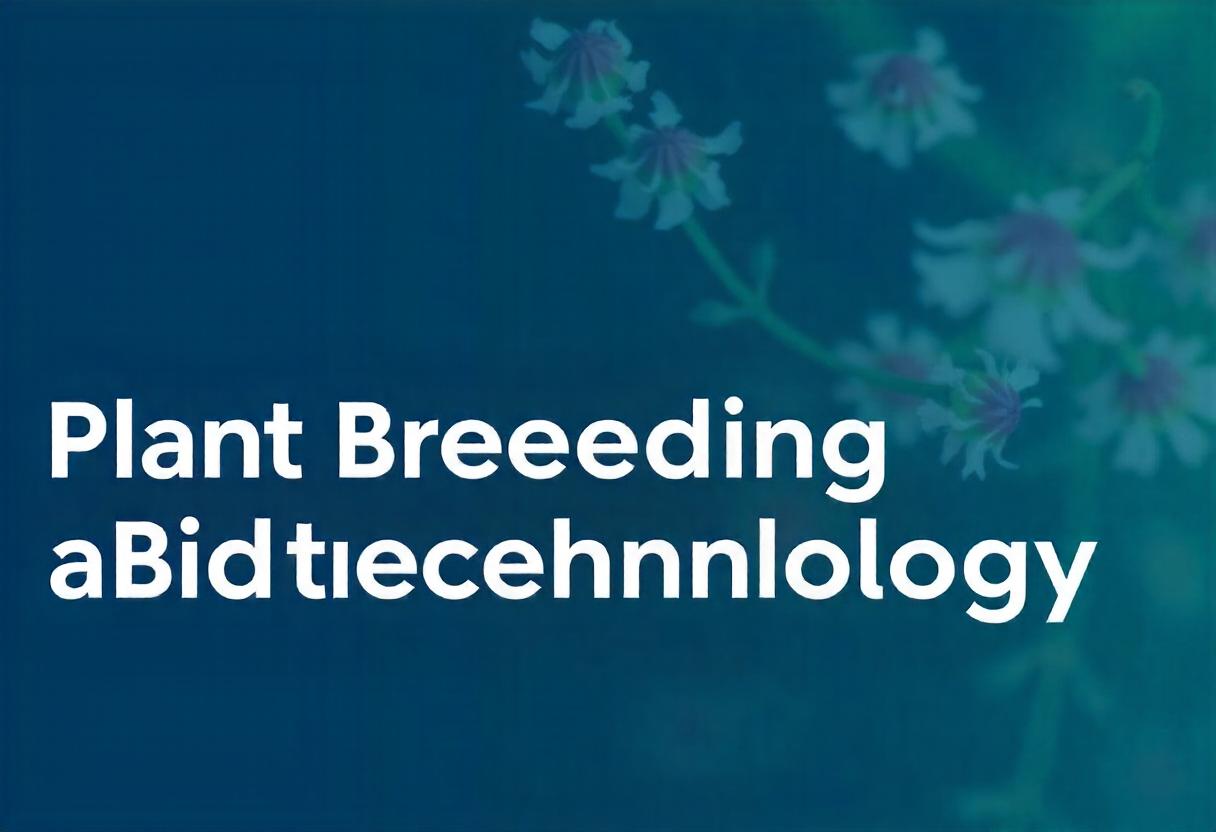
Plant breeding and biotechnology are essential fields in modern agriculture, contributing significantly to crop improvement, food security, and environmental sustainability. By harnessing scientific techniques and genetic knowledge, plant breeders and biotechnologists develop crop varieties with improved yields, resistance to diseases, and adaptability to changing environmental conditions.
Traditional Plant Breeding
Traditional plant breeding involves selecting parent plants with desirable traits and cross-breeding them to produce offspring with improved characteristics. This process has been used for thousands of years to improve crops like wheat, rice, maize, and vegetables. Traditional breeding methods rely on genetic variation naturally found in plants and take several generations to achieve significant results.
The key steps in traditional plant breeding include:
- Selection: Choosing parent plants with desirable traits such as disease resistance, drought tolerance, or higher yields.
- Cross-pollination: Breeding selected plants by cross-pollinating them to combine their genetic material.
- Progeny evaluation: Assessing the offspring for the desired traits and selecting the best individuals for further breeding.
- Stabilization: Repeated crossbreeding and selection to stabilize the desired traits in the new variety.
Biotechnology in Plant Breeding
Biotechnology enhances traditional breeding techniques by introducing new tools to modify plants at the molecular level. This field includes genetic engineering, marker-assisted selection, and tissue culture. Biotechnology allows for faster and more precise development of crops with desirable traits.
Genetic Engineering
Genetic engineering is one of the most significant advancements in biotechnology. It involves directly manipulating an organism’s DNA by introducing genes from other species, a process known as transgenics. Genetically modified organisms (GMOs) have been developed to exhibit specific traits such as pest resistance, herbicide tolerance, and improved nutritional content.
For example, Bt cotton is a genetically engineered crop that produces a toxin from the bacterium Bacillus thuringiensis, which protects the plant from certain insect pests.
Marker-Assisted Selection (MAS)
Marker-assisted selection is a biotechnology tool that helps breeders identify specific genes responsible for desirable traits. By using molecular markers, breeders can track the inheritance of these traits more accurately, speeding up the breeding process. This method is particularly useful for complex traits such as drought tolerance or disease resistance, which may be controlled by multiple genes.
Tissue Culture
Tissue culture is a biotechnology technique used to propagate plants under controlled conditions. By cultivating plant cells or tissues in a nutrient-rich medium, scientists can produce clones of plants with desirable traits. This method is essential for preserving genetic material, developing disease-free plants, and rapidly multiplying elite varieties.
Applications of Plant Breeding and Biotechnology
Plant breeding and biotechnology have numerous applications in modern agriculture, addressing some of the most pressing challenges, such as:
- Disease Resistance: Breeding plants that are resistant to viruses, fungi, and bacteria can reduce the need for chemical pesticides, promoting more sustainable farming practices.
- Drought Tolerance: Developing crops that can thrive in water-scarce environments is crucial for ensuring food security in areas affected by climate change.
- Nutritional Improvement: Biotechnology has enabled the creation of biofortified crops, such as Golden Rice, which is enriched with Vitamin A to combat malnutrition in developing countries.
- Increased Yield: Through selective breeding and genetic modification, plant breeders aim to increase crop yields, helping to feed a growing global population.
- Herbicide Resistance: Herbicide-tolerant crops allow farmers to control weeds more effectively, reducing the need for manual labor and enhancing productivity.
Ethical and Environmental Considerations
The use of biotechnology in plant breeding has sparked ethical debates and environmental concerns. Critics argue that genetically modified crops may pose risks to human health, biodiversity, and traditional farming practices. There are also concerns about the economic impact on small-scale farmers who may not have access to biotechnology resources.
Despite these challenges, proponents of plant biotechnology emphasize its potential to enhance food production, reduce chemical inputs, and mitigate the effects of climate change. Many countries have established regulatory frameworks to ensure the safety and ethical use of biotechnology in agriculture.